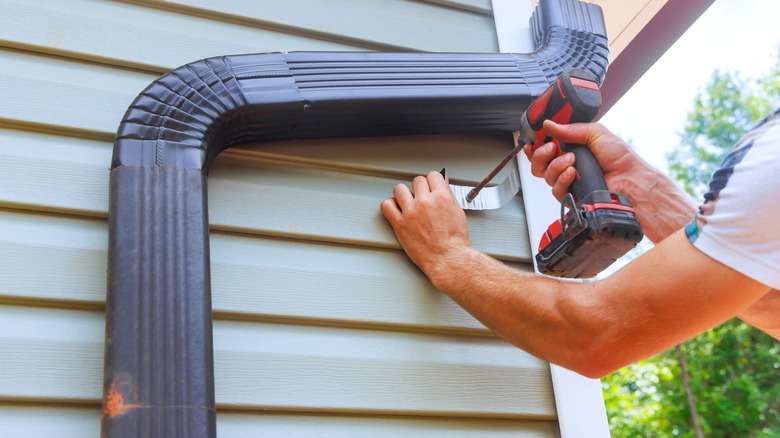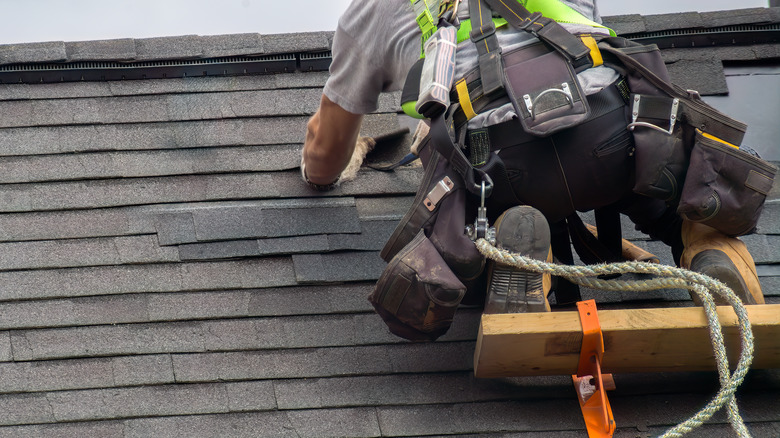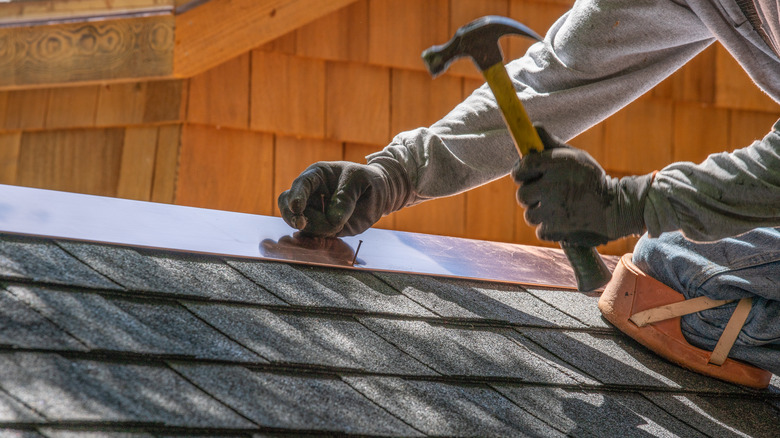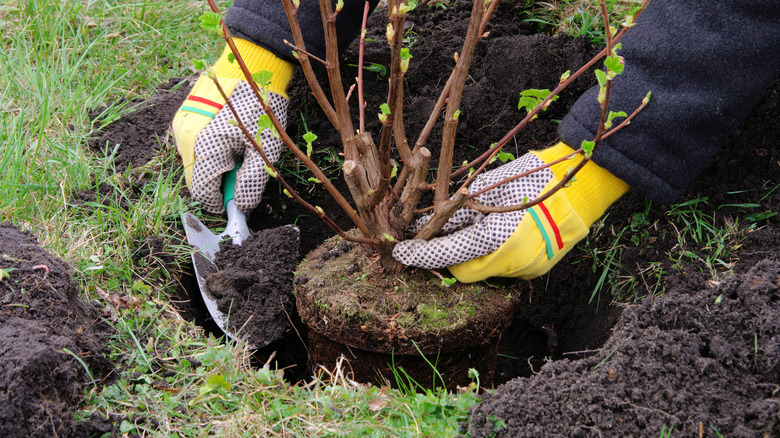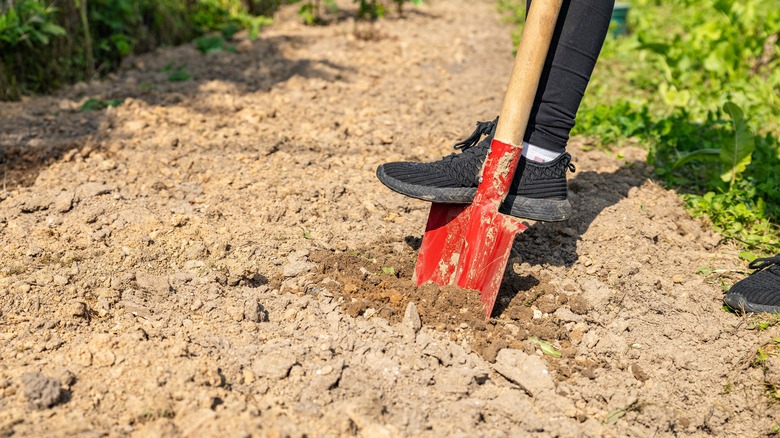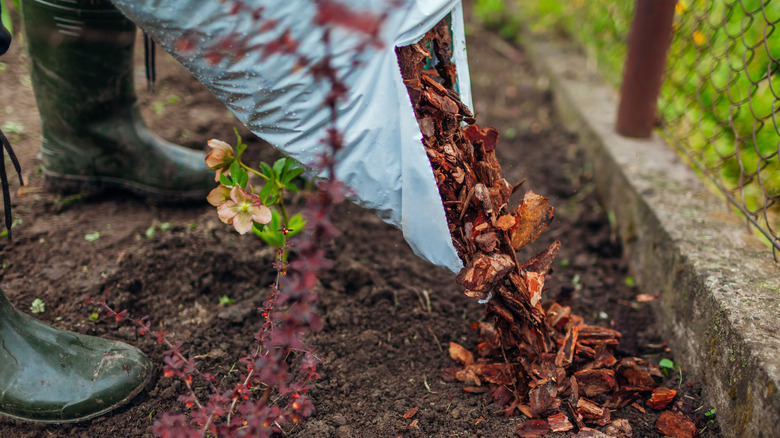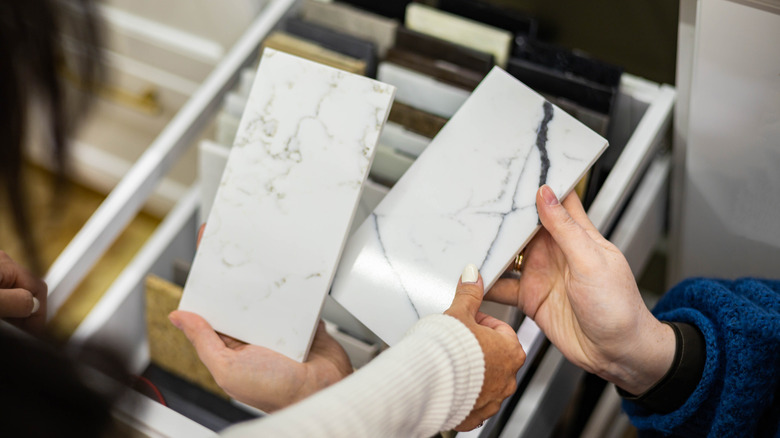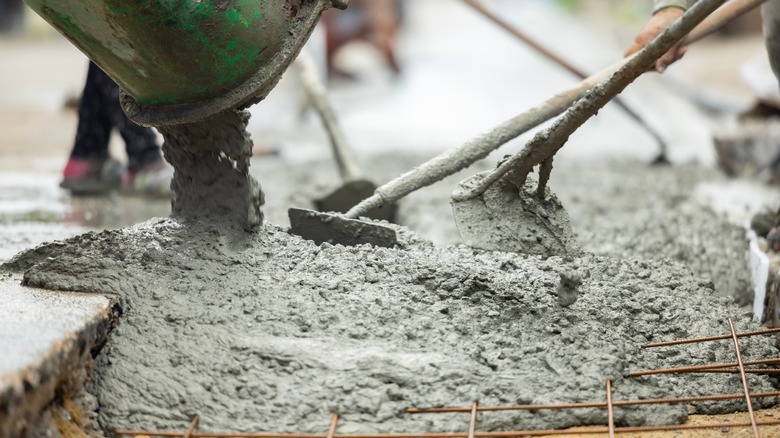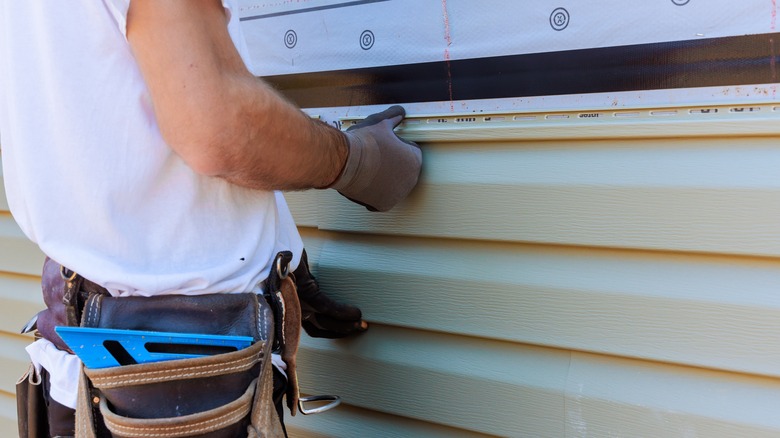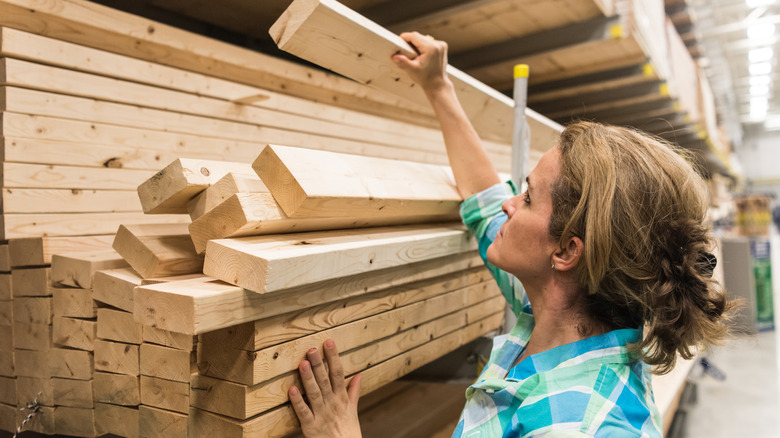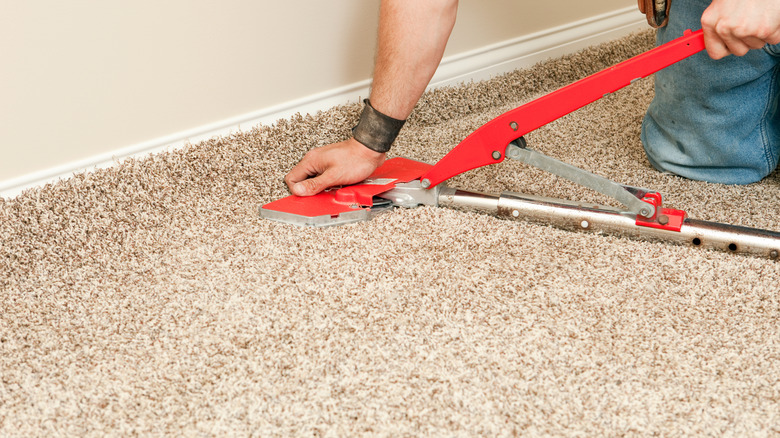Things You Should Never Buy At Lowe's, According To 10 Experts
When it comes to buying home improvement materials, supplies, and tools, many shoppers head to their local big-box store. For a lot of people, that's a Lowe's location, greeting shoppers with blue carts and aisles of variety. But, while Lowe's might be your go-to spot for great value on items like paint, light fixtures, and appliances, there are a few things that the pros say you shouldn't buy from the retailer.
House Digest spoke exclusively to professionals in various construction fields to gather insights from their extensive knowledge and experience. These eight experts shared their advice on items you should never buy from Lowe's — from landscaping must-haves to construction materials — breaking down why purchasing them from the retailer is a no-go. Instead, they offer recommendations on where to find better alternatives to make sure your project goes without a hitch.
Avoid cutting corners by buying shingles at Lowe's
When it comes to home upgrades, a roof is a big investment that averages about $11,500. So, it can be tempting to shave a little off the budget and order lower-cost shingles from Lowe's. However, Jimmy Hertilien, a contractor at Herts Roofing, warns homeowners against the temptation. He exclusively tells House Digest, "As an expert roofing contractor, I would advise against purchasing roofing materials from Lowe's. Their selection is limited, quality is lacking, and they do not guarantee proper installation." He explains how these major downfalls can lead to big issues, recalling a client that insisted on using them and ended up with a leaky roof that had to be replaced just six months after installation, at the company's cost.
Chris Stevenson of 730 South Exteriors & Roofing agrees. In an exclusive interview with House Digest, he says that the retailer doesn't carry the brands that the pros prefer, like Owens Corning. Instead, Lowe's offers lower-budget options that come with the con of poor longevity. He says, "These 'contractor-grade' shingles are made to be more affordable, but they typically aren't as durable and may not have the same warranties as the premium products available through dedicated roofing suppliers."
Both suggest looking elsewhere when it comes to such a big investment. Hertilien says that his company won't install products from stores like Lowe's and prefers suppliers that focus on dealing with contractors, explaining, "They have a far superior selection, higher quality products that meet building code standards, and will guarantee materials and workmanship." Stevenson agrees, noting that the quality and lifespan that you can only get from premium shingles is a top priority when it comes to a new roof.
Gutters from the big-box store can lead to frustrating leaks
When it comes to another aspect of your roof — the gutters — Hertilien also suggests you look elsewhere for supplies. He describes his experience with gutters from Lowe's, saying, "Their gutters were thin, prone to crimping and leakage. On one job, the gutters failed within a month, flooding the client's basement." For this reason, his business warns its clients about buying gutters from mainstream hardware stores.
When it comes to your property's exterior Hertilien says, "It's best to go with a reputable, specialized building supply company. The quality difference is well worth any minor upcharge." Homeowners who heed this expert's advice will likely be grateful in the long run. Failing gutters can't properly drain water from your roof and away from your home. This can lead to everything from mold and mildew accumulating in your walls, to stained facades and water seeping into the basement. Choosing the right type of gutter for your home is also a must. For example, seamless gutters are cut to your home's measurements and have minimal joints and seams, making them lower maintenance and more leak-proof. These can be fabricated by a gutter specialist, giving you a product that both looks great and can do a better job of protecting your home than store-bought vinyl versions.
Look elsewhere for your roof's foundation as well
Clearly, your home's roof system is a pivotal part of its structure. Underlayment is installed under the shingles to provide a waterproof barrier, and flashing is used at vulnerable points like around the chimney or in valleys to direct water away. So, when it comes to these vital components, Stevenson says that Lowe's options are simply thinner and less durable, and can lead to long-term issues. He explains, "Flashing is critical in preventing leaks, so using something that corrodes or bends easily can lead to problems down the road." He also emphasizes that "underlayment is your roof's first line of defense against moisture, so durability matters."
Instead, Stevenson recommends sourcing both items from specialized roofing suppliers, noting that they "offer thicker, more resistant underlayments that provide better water and vapor barriers, which is crucial in preventing leaks and moisture buildup over time." He explains that the sturdier flashing that these suppliers can provide will give homeowners better protection from the elements. This also helps prevent water damage in the long run, making it a worthwhile investment.
Landscaping plants from Lowe's likely aren't the healthiest around
When overhauling your landscaping, all of those shrubs and perennials can really add up. To make the most of your investment, our expert suggests steering clear of the Lowe's garden center. Josh Payne, owner of Classic Landscapes & Gardens, explains that he avoids purchasing plants from the retailer. He exclusively tells House Digest, "Their selection is limited and the plants are often disease-ridden." The pro recounts a story where a client sourced their own plants from the store, hiring Payne's crew to install them. Unfortunately, disease overtook them within weeks, and the crew had to return to the property to plant fresh ones.
Payne explains that he will no longer take on a job where clients buy their own plants and says, "For landscaping, it's best to go to a reputable nursery that caters to professionals. The quality and selection are far better, and they stand behind their products." So, whether you're looking for plants for a hired crew or DIYing your own landscaping project, do your due diligence and find a local supplier. Ones that grow their own plants or source them from nearby greenhouses will likely be stocked with species that are native to your region. Plus, they've been raised in your local climate, reducing the shock that can come with relocation.
Avoid landscaping implements from Lowe's, and invest in better options instead
Payne also recommends sourcing your garden tools from elsewhere, especially if you are planning on taking on some tough outdoor tasks. The landscaping expert explains, "Lowe's gardening tools are poorly constructed and break easily under professional use." He notes that the store's tools are fine for light landscaping tasks and simple outdoor DIYs, but that they come up short when durability and quality are key.
So, if you're looking to take on your own landscaping overhaul or are ready to invest in tools that will last through years of yard maintenance, lean on Payne's expertise. He advises, "For professional work, specialized suppliers are the best option." So, look for a local landscape supplier that sells commercial-grade tools. They will likely have knowledgeable staff on hand to guide you in selecting the right option for your job and price range. Or, check out websites like A.M Leonard and Seymour West, which specialize in supplying pros with dependable tools. Just be prepared for a higher price point if you're used to browsing the shovel and saw aisles at Lowe's.
Look elsewhere for mulch to avoid disappointment
Most homeowners find themselves having to mulch every spring, making a lower material cost tempting. However, Sal Musto, owner of SalCorp Landscaping & Construction, cautions customers about reaching for bags from Lowe's. He explains, "Lowe's mulch is also subpar. A few years back, a customer's mulch faded and rotted in months, leaving their garden unattractive." So, while that seasonal promotion might seem like a great deal, you might find your beds looking lackluster and needing a new layer of mulch by the 4th of July.
Musto advises clients to source their mulch from a reputable nursery with the knowledge to guide them in their selection. He explains, "The quality difference is worth any small extra cost." Look to online reviews and the experiences of friends and neighbors to guide you in finding a local mulch source. In addition to improved quality, you may also be able to have your order delivered for a nominal fee, saving you from lugging those bags in and out of your car.
Don't purchase tools from Lowe's if you need pro-level results
Sure, Lowe's might seem to stock every tool imaginable. But the pros warn against purchasing yours there if you want them to stand up to heavy use and provide quality results. Timothy Wood, Founder and CEO of Fix It Today, exclusively tells House Digest, "I wouldn't recommend buying woodworking tools from Lowe's if you're a handyman or contractor. While they have a decent selection, many of their tools are aimed at casual users and might not hold up well for heavy-duty jobs. If you're doing things beyond simple hobby woodworking, you'll need tools that are reliable and can withstand regular use, and Lowe's offerings may not always meet those expectations." So if you're looking to remodel your house or take on an equally extensive project, it's better to upgrade to a more specialty retailer. "Specialty tool stores or online retailers often provide higher-quality options from trusted brands that are designed for serious work," he notes.
Austin Skoog, owner of Sky Side Exteriors, agrees, especially when it comes to intensive projects. He exclusively tells House Digest, "Siding installation requires heavy-duty tools that can handle precise cutting, long hours of use, and durable materials. The power tools at Lowe's are often good for basic tasks, but for siding, I prefer tools that are specifically designed to handle the job." He recalls working with a crew that used a saw from Lowe's on siding materials, resulting in rough cuts. The crew ended up having to rent a higher-powered saw to finish the job instead.
Lowe's is not ideal for your countertop overhaul
It may be convenient to stop by your local Lowe's, check out the countertop options, and place your order with a staff member. However, Martin Orefice, CEO of Rent To Own Labs, suggests you go straight to the source instead, especially if budget is a priority. He exclusively tells House Digest, "Lowe's has plenty of good countertop options, but this is one area where you can save a lot of money by cutting out the middleman. Go directly to a supplier, especially for stone countertops, and you'll save a lot."
If you're looking for marble, quartz, or granite countertops, you can work with a fabricator on your project and they'll connect you with a distributor to choose a slab. In stores like Lowe's, you typically only see a small sample of the material. However, when you browse the full slabs in a warehouse showroom, you can view the entire surface and visualize it in your kitchen. Once you select your slab, your fabricator will cut it to fit the exact dimensions of your space. This streamlines the custom countertop-purchasing process, eliminating the expense that comes with retail store salespeople.
The retailer doesn't carry the right supplies for major concrete projects
If you're taking on a major project like pouring a driveway or patio, it's worth it to source high-quality concrete. And, Bill Bencker, pro concrete contractor with Ace Avant Concrete Construction, explains that Lowe's products don't stack up. He exclusively tells House Digest that the pre-mixed bags of concrete from the store often lack the quality of the specialized product that can be purchased in bulk. Bencker explains, "The mix in these bags can be inconsistent, and for large-scale projects, it's a much more expensive way to source concrete. Additionally, if the bags are improperly stored, they may be compromised, leading to weak or poorly set concrete." The contractor shares that when they used the bags to pour a commercial slab, it cracked in months. While the pre-mixed product may be ideal for minor DIYs where you need a small quantity, it's not a safe bet for major projects.
Bencker also shared that the sealers and additives sold at Lowe's have the same caveat. They're ok for small areas with little traffic, but when it comes to larger spaces that need to stand up to more rigorous use, they don't cut it. He explains the reasoning behind this, saying, "These products are often formulated with cheaper ingredients and can break down or wear away faster, requiring more frequent reapplications."
So, if you want to take on a major project, going through the trouble of sourcing reliable materials is worth it. Bencker explains, "For heavy-duty applications, you need a stronger, more reliable product, and bulk concrete delivers just that, at a much better price per cubic yard." He also notes that the investment in high-quality sealers from a specialized supplier is well worth the price to protect your concrete investment for years to come.
Lowe's lower-end siding brands may leave you with regret
Your home's siding needs to stand up to various weather conditions while boosting your curb appeal, so choosing a quality product counts. Austin Skoog, owner of Sky Side Exteriors, explains that if you want a resilient surface for years to come, most cheaply manufactured siding products will likely fail to deliver. He explains exclusively to House Digest, "When it comes to siding, the quality really matters. Lowe's tends to carry lower-end brands that can be thinner, less durable, and more likely to warp, crack, or fade over time. Plus, Lowe's doesn't always carry the premium brands that specialize in siding, so your options are pretty limited." While it might be fine for a structure you don't plan to own for decades, like a shed, it's not the best option for your home.
Skoog recalls a project where he used vinyl siding from the store, reporting that it began to look warped after a few summers' worth of heat. The siding had to be replaced prematurely, causing the homeowner a preventable headache. He notes that had they used a specialized supplier, the homeowner would have received higher-quality results. In many homes, the siding covers a vast majority of the façade. So, investing in a high-quality specialty option that looks great is a worthwhile expense, especially when it comes with a longer lifespan. Plus, depending on the type of siding you choose, it can insulate your home's interior and protect it from weather and pests.
Lowe's pressure-treated lumber isn't up to par for custom projects
With many projects, the lumber used can drastically impact the final result. So, when it comes to choosing pressure-treated lumber for things like exterior projects, quality is key. And Skoog just hasn't experienced that consistency at Lowe's, with the options sometimes even causing project delays. He explains, "Sometimes you get boards that are warped or too wet, which makes them difficult to work with for custom trim or framing on a siding job. I've had a few experiences where we bought pressure-treated lumber from Lowe's for custom trim work, and it ended up being warped or unstable."
Andriy Boyko of A.O. Handy Inc., a company that specializes in masonry restoration and repairs, had a similar experience. He exclusively tells House Digest that the improper storage conditions at Lowe's can impact the quality of the lumber, leading to a frustrating shopping experience. He explains, "A lot of their boards are warped, bowed, or have large knots, which makes them difficult to work with for projects that need precision."
Skoog switched to a new supplier that rectified the issue with better-quality boards. He advises, "When you're looking for precision and stability, it's usually better to go to a local lumber yard that specializes in high-quality wood." Boyko agrees, recalling a time when he bought various deck boards from Lowe's only to find that half were unusable. "So I suggest going to a lumberyard where they have a better selection and better care for their wood. You'll get straighter, higher-quality boards that make your project go a lot smoother." To find a lumber yard near you, look to resources like Yelp and Reddit to see what kind of service and quality others have received.
Revamping your floors with Lowe's services could leave you with low-quality results
As with countertops, choosing and setting up your new floor installation at your local Lowe's may seem convenient. However, Boyko advises you to exercise caution and consider the risks. He notes, "Lowe's flooring options might seem appealing, but their installation services are often outsourced to subcontractors, and the quality can be hit or miss."
This means that if installation goes awry, getting the issue fixed can be problematic. He explains, "I had a client who used Lowe's installation service for new carpet, but the installer didn't stretch it properly, leading to wrinkles within months. Getting Lowe's to fix it was a hassle, and they ended up paying for a second installation."
Boyko recommends finding your own local flooring contractor instead. He advises looking for positive reviews from previous customers to find one that will provide more proactive service and higher-quality workmanship. Resources like Yelp, Angie's List, and Reddit can help you peek at the experiences of those in your area and narrow down your search.
